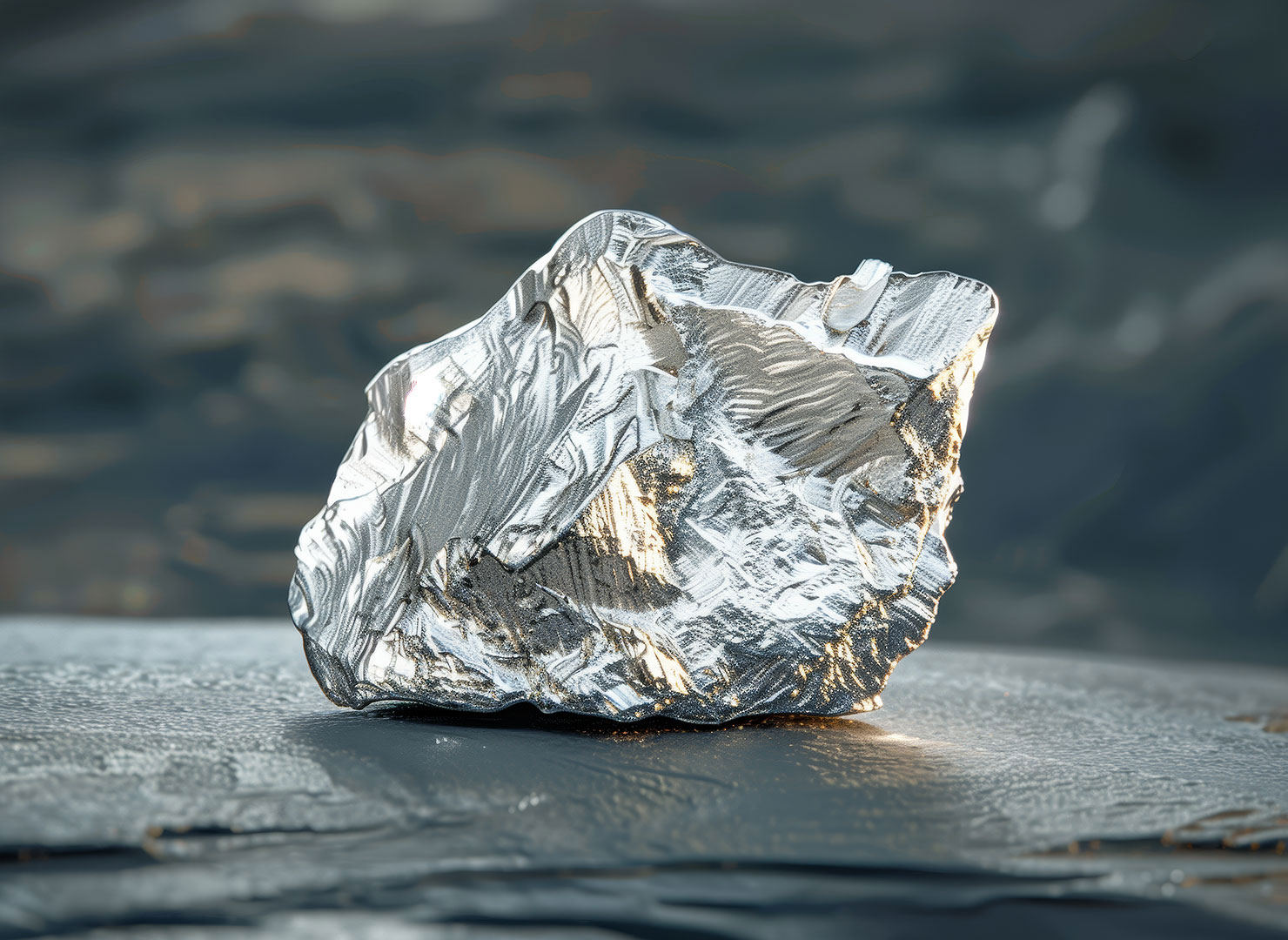The Element Terbium
On this page you can find out more about the rare earth element
Name: Terbium
Symbol: Tb
Ordinal number: 65
Density: 8,23 g/cm3
Melting point: 1.356 °C
Boiling temperature: 3.123 °C
Terbium is one of the lanthanidesA group of 15 elements with chemically very similar properties. in the periodic table.
Introduction
Terbium Plays a Central Role in Future Technologies
Terbium is a so-called heavy rare earth. These are significantly rarer and more costly to extract than the light representatives of the raw material group. As a result, terbium is one of the most expensive rare earth elements. It plays an important role in the energy and transportation transition.

Well-Known Discoverer, But a Convoluted History of Discovery
Terbium plays a special role in the decades-long history of the discovery of rare earths, which is characterized by error, confusion, and confusingly similar names. The sources and historical records are inconsistent, what is certain, however, is that terbium is named after the Ytterby mine near Stockholm, the first place where numerous rare earth elements were found. Yttrium, ytterbium, and erbium also owe their names to this Swedish mine. The Swedish chemist Carl Gustav Mosander is generally regarded as the discoverer of terbium. He isolated it in the early 1840s, but not in its pure form.
Main areas of application for terbium

Terbium’s discoverer
Carl Gustav Mosander was born in Kalmar, Sweden, in 1797. Trained as a doctor, he became a research assistant to Jöns Jakob Berzelius and eventually discovered several lanthanides during his work as a professor of Chemistry and Mineralogy.
Characteristics
Terbium Is Relatively Stable in Air
The silver-grey metal is ductile, i.e., plastically malleable, and forgeable. Terbium is relatively stable in air but becomes coated with an oxide layer.
Areas of Application
Green Energy: Terbium Makes Neodymium-Iron-Boron Magnets More Powerful
Terbium can be added to permanent magnets with neodymium-iron-boron to improve performance and increase the magnet’s operating temperature from just under 80 to 200 degrees Celsius. These magnets are increasingly in demand for applications such as electromobility, wind power, consumer electronics, and military technology. Terbium is also used to dope semiconductors (to change their conductivity) and as a stabilizer for fuel cells. Other areas of application include light sources and lasers.

Permanent Magnets
Permanent magnets retain their magnetic force without external energy inputs. They are in great demand in areas that require high power density, such as electromobility and wind power. They are the driving force behind many environmentally friendly technologies.
Learn more

Semiconductors
Semiconductors are solids whose conductivity can be modified by doping with rare earths. Semiconductors form the basis for LEDs, microprocessors, solar cells, and many lasers.
Learn more

Catalysts
Catalysts increase the speed of a chemical reaction and are indispensable in many industries. In automotive catalytic converters, for example, catalysts convert combustion pollutants into non-toxic residues.
Learn more

Laser
Laser beams are concentrated electromagnetic waves. They have various applications in industry, medicine, and the military. Lasers enable high-speed Internet through optical fibers.
Learn more
Deposits
China has a virtual monopoly
Ion adsorption clays, which are currently mined primarily in China and Myanmar, are the most important source of heavy rare earths such as terbium. In these deposits, there is comparatively little association with radioactive elements. The raw material is extracted on-site by leaching and then chemically processed into oxide or metal. China has a virtual monopoly on the mining and processing of rare earths.
The map shows the regions of the world where heavy rare earths are currently mainly mined.

Demand Could Increase Sevenfold
Terbium is also considered a particularly critical raw material due to its rarity and high price. Its use in NdFeB magnets in particular is likely to drive demand for the element. By 2040, according to the German Mineral Resources Agency (DERA), demand for dysprosium and terbium could rise to up to 687% of production of the refined metal in 2018.
Price Development
The Price of Terbium as a Physical Asset
At TRADIUM, private customers can buy terbium as a physical asset. The following price chart shows the price development of the rare earth metal in its most common trading form. The chart is for information purposes only and does not reflect an offer to purchase.
Here you can find the price charts for other rare earths available as physical assets from TRADIUM.
Raw Materials Trading Industrial Customers
TRADIUM trades in all industrially relevant rare earth oxides. Choose from a wide range of specifications and take advantage of the option to reserve batches for the long term.
Purchase of Physical Assets for Private Customers
Benefit as a private customer from the exciting market for rare earths as a physical asset. You can find out here what opportunities TRADIUM offers and what tax advantages a purchase of raw materials entails.